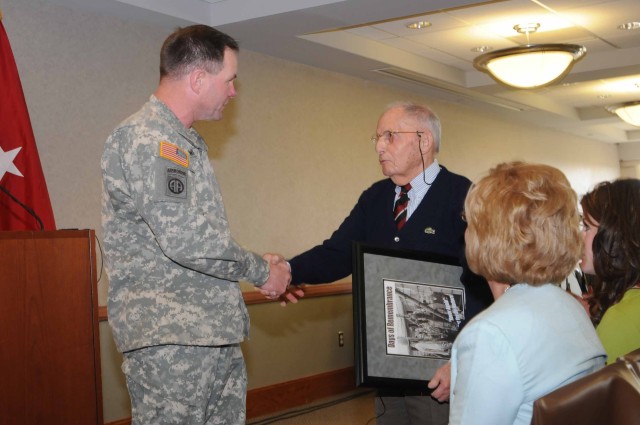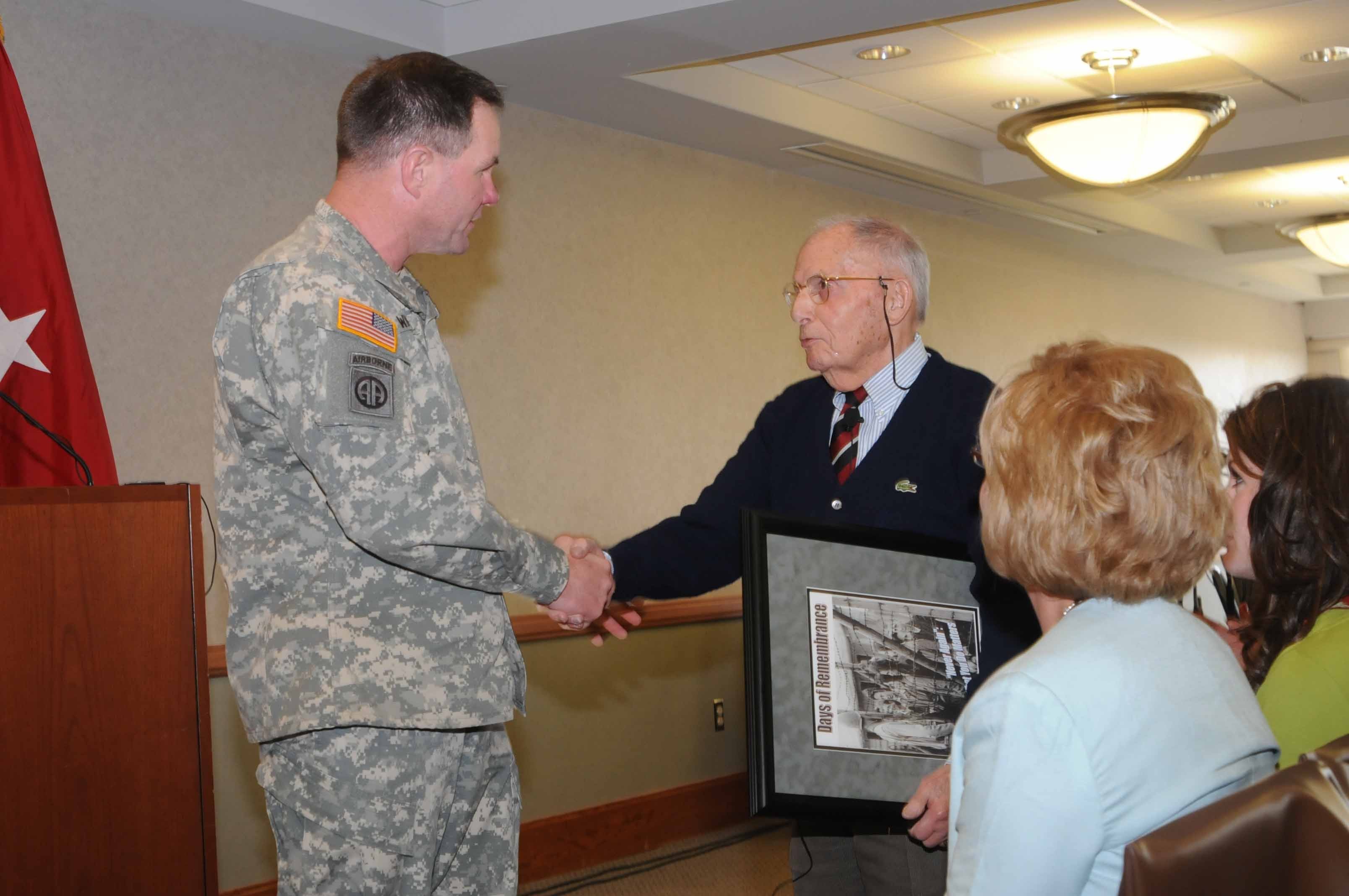FORT RILEY, Kan. - Robert Behr is a U.S. Army veteran and a former "Big Red One" Soldier. He said life got better once he joined the Army at age 25, with regular meals and place to sleep. Unlike most young recruits, Behr's life before the Army was that of a concentration camp detainee.
Behr told his story of struggling to survive during the Days of Remembrance Observance April 15 at Riley's Conference Center on post. This year's theme was, "Never again: What we do matters."
When Behr first heard Adolph Hitler's speeches on the radio in his Berlin apartment, the Jewish boy found the fuhrer's rants mesmerizing.
"I found my heart pumping through my shirt," Behr said. "The man was fascinating. What he said was horrible, but how he said it was excellent."
The 87-year-old Behr was just 13 in 1935 when Nazis closed his German boarding school. Three years later, the Jewish boy living in Berlin witnessed the Nazi destruction of Jewish shops and businesses during "Kristallnacht," an anti-Jewish riot also known as the night of broken glass.
Following nationwide acts of vandalism, Behr recounted how his mother received a letter from the owner of the building where they lived saying their Christian Aryan neighbors could no longer tolerate living under the same roof with Jews. Behr and his mother were given just 14 days to vacate their apartment.
This new, sub-human treatment was a shock to Behr, whose father, a medical doctor, had earned an Iron Cross serving in Kaiser Wilhelm's army in World War I. He related their experience to a modern scenario.
"We're all proud to be Americans. But how would you feel if suddenly the government told you they don't want you'" Behr asked. "They said they would let us live there (in Germany), but it was more like 'exist' there."
After Germany's invasions of France, Poland and Austria, the situation for Jews deteriorated even more.
In 1942, Behr and his mother were arrested by Gestapo agents and deported to Theresienstadt, a ghetto in Czechoslovakia. In 1944, he went to work at Wulkow, a satellite camp of Theresienstadt; because the SS had promised the families of Jews who volunteered would be protected from deportation to the gas chambers. Prisoners at Wulkow were forced to build a new headquarters for the SS because American and British bombers had destroyed the one in Berlin.
Behr remained in Wulkow until February 1945, when the prisoners were returned to Theresienstadt. The Soviet Army liberated the camp on May 5, 1945.
Behr and his mother returned to Berlin, and with the help of Russian authorities, they regained their home that had been overrun by war refugees.
Behr turned the tables on his persecutors two years after the war ended. He immigrated to the United States in 1947 without his mother, who was too weak to travel. He enlisted in the U.S. Army in July 1947, hoping to be sent to Germany where he also could help his mother. Although his original orders would have sent him to Korea, Behr was able to return to his homeland by November 1947, working as an intelligence officer interrogating former Nazi personnel.
He left the Army in 1952 and secured a civil service position with the U.S. Air Force as an intelligence officer. He retired in Dayton, Ohio, in 1988 after 39 years of government service. Behr later took the GED test and earned bachelor and master degrees in modern European history. He also was an adjunct professor teaching European history with a special emphasis on World War II and the Holocaust.
Lt. Col. Maria Bentinck, 1st Infantry Division Equal Opportunity program manager, said it's important to honor Behr's contributions.
"The victims of the Holocaust deserve our respect and remembrance," Bentinck said. "We need to learn from history to ensure that history is never repeated."
At the end of Behr's presentation, Brig. Gen. Perry Wiggins, 1st Inf. Div. assistant division commander for maneuver, presented a framed poster of the event program to Behr. Wiggins told those attending what happened to Behr and others would be unthinkable for many people today. He referred to how Behr's Family supported Germany and embraced its ideals, only to be forsaken by its Nazi leadership.
Behr is now a volunteer at the United States Holocaust Memorial Museum in Washington, D.C.


Social Sharing